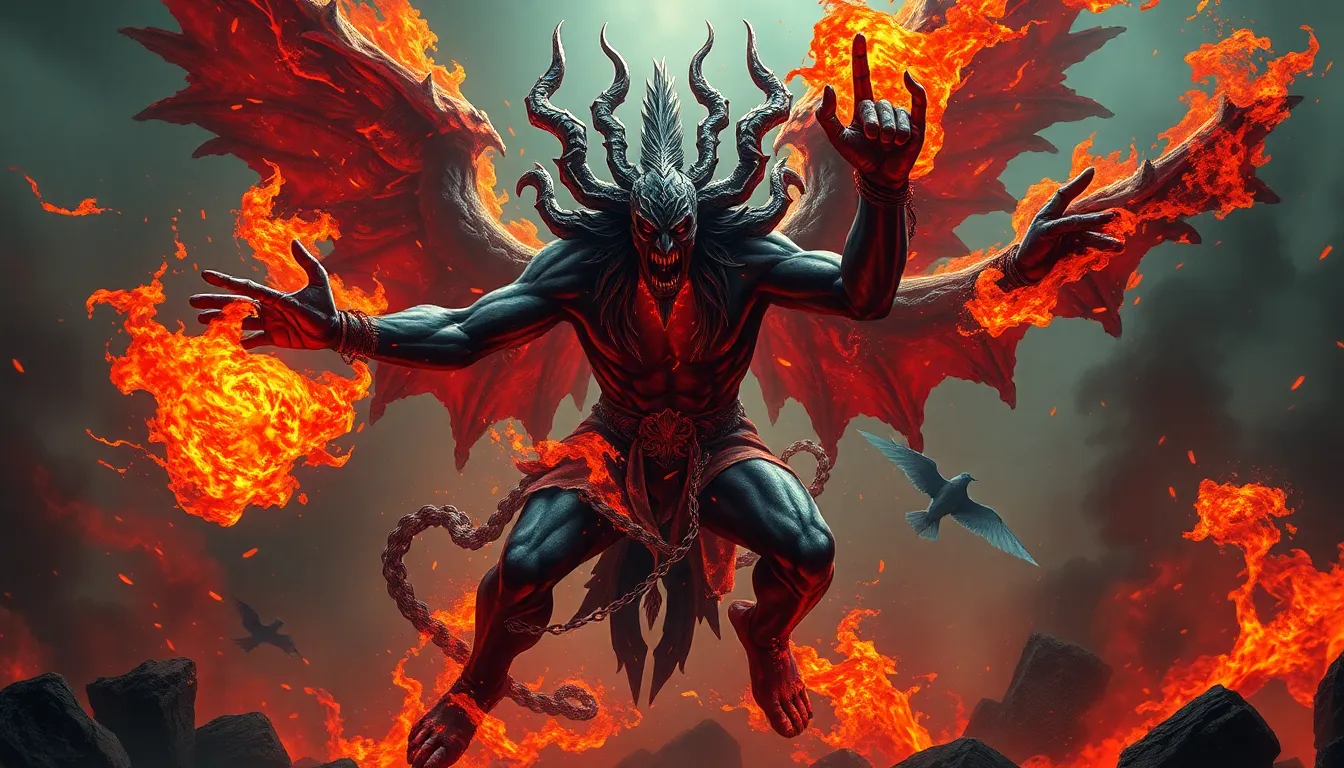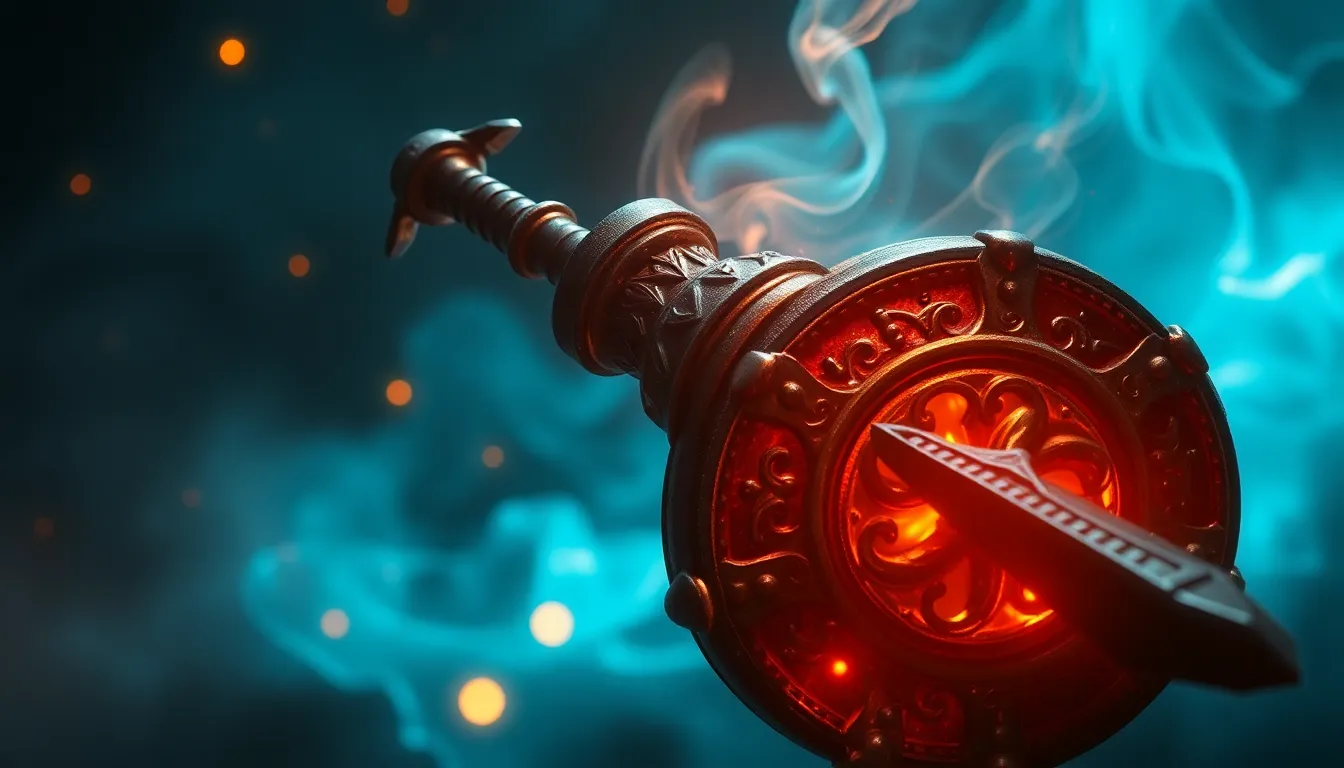Divine Fury: The Most Horrific Punishments in World Mythology
Introduction to Divine Fury and Punishment in Mythology
Across various cultures, the concept of divine fury is often intertwined with the notion of punishment. Divine fury refers to the intense anger exhibited by deities when their laws or moral codes are violated. This wrath serves as a mechanism for maintaining cosmic order, ensuring that moral transgressions do not go unpunished. The purpose of this article is to explore some of the most horrific punishments found in world mythology, illustrating how the fear of divine retribution has shaped human behavior and cultural narratives.
The Concept of Justice Among the Gods
Divine justice differs significantly from human justice. While human justice may be influenced by personal biases and societal norms, divine justice is absolute, often seen as a reflection of the moral order of the universe. The implications of divine punishment are profound, as they not only serve as warnings but also as lessons on morality.
- Divine justice is often portrayed as harsh and unforgiving.
- Many cultures depict their gods as enforcers of justice, maintaining balance through severe consequences.
- Gods are often seen as omniscient, knowing the thoughts and intentions behind every action.
Examples of cultures that depict gods as enforcers of justice include ancient Greece, Mesopotamia, and the Abrahamic traditions, all of which have rich mythologies centered around the consequences of moral failings.
Greek Mythology: The Wrath of the Olympians
In Greek mythology, the Olympian gods are notorious for their fierce retribution against mortals who defy them. One of the most infamous stories is that of Prometheus, who stole fire from the gods to give to humanity. For this act of defiance, Zeus condemned him to eternal torment, where an eagle would eat his liver daily, only for it to regenerate each night.
Hera, the queen of the gods, also exhibited divine fury through her revenge against Zeus’s lovers and their offspring. Many of these victims faced horrific fates, such as being turned into animals or suffering endless misfortune.
Another tragic figure is Tantalus, who, after inviting the gods to a feast and serving his son as a meal, was punished to stand forever in a pool of water beneath a fruit tree. Whenever he reached for the fruit, it would recede, and whenever he bent down to drink, the water would disappear.
Norse Mythology: The Penalties of Betrayal and Deceit
Norse mythology is rich with tales of betrayal and the severe consequences that follow. Loki, the trickster god, faced a horrific punishment for his role in the death of Balder, the beloved god. As retribution, the other gods bound Loki in a cave, where a serpent dripped venom onto his face. His wife, Sigyn, stood by him, catching the venom in a bowl, but whenever she had to empty it, Loki would suffer immensely.
The fate of Fenrir, the monstrous wolf, is another example of divine punishment. To prevent him from wreaking havoc, the gods bound him with chains. In the prophesied Ragnarok, his escape will bring about catastrophic consequences for the gods, illustrating the cyclical nature of divine retribution.
Hel, the goddess of the underworld, is another figure embodying divine punishment. She oversees the souls of the damned, ensuring they receive the repercussions of their earthly deeds.
Hindu Mythology: Cosmic Balance and Retribution
In Hindu mythology, the principle of Karma governs the cycle of life and death, where every action has a corresponding reaction. This can lead to horrifying manifestations of punishment. The story of Ravana, the ten-headed demon king, is a prime example. His abduction of Sita, the wife of Rama, led to his ultimate destruction in a fierce battle, symbolizing divine retribution for his transgressions.
The concept of Naraka, or hell, in Hindu belief depicts various levels of punishment based on one’s sins. Souls may endure torturous experiences tailored to their misdeeds, reinforcing the idea that moral balance must be restored.
Mesopotamian Myths: The Dark Side of Divine Justice
Mesopotamian myths often explore the darker aspects of divine justice. The story of Inanna’s descent into the Underworld illustrates the consequences of defying the natural order. Inanna, the goddess of love and war, sought to conquer the Underworld but was met with harsh penalties, showcasing the risks of overstepping divine boundaries.
The epic of Gilgamesh also highlights the punishment for hubris. Gilgamesh, seeking immortality, faced the wrath of the gods, who reminded him of his mortality through a series of trials and tribulations.
Additionally, the gods in Mesopotamian lore often used natural disasters as forms of punishment, reflecting their discontent with humanity’s actions.
Abrahamic Traditions: Divine Retribution through Catastrophe
In Abrahamic traditions, divine retribution is prominently featured through catastrophic events. The Great Flood, as narrated in the Book of Genesis, serves as a punishment for humanity’s wickedness, leading to the near-total annihilation of life. Noah and his family were spared, symbolizing hope and renewal after divine fury.
The destruction of Sodom and Gomorrah further exemplifies divine punishment for moral transgressions. The cities, known for their wickedness, were obliterated, with only Lot and his family escaping, serving as a moral lesson on the consequences of immorality.
Similarly, the plagues of Egypt, sent to persuade Pharaoh to free the enslaved Israelites, illustrate the power of divine fury. Each plague served as a sign of God’s wrath, culminating in the final devastating event that led to the Exodus.
African and Indigenous Mythologies: Nature as a Punisher
African and indigenous mythologies often portray nature itself as a punisher. Ancestral spirits play a crucial role in enforcing moral behavior, and transgressions against cultural norms can lead to severe consequences. For instance, droughts, famines, and plagues are often interpreted as signs of divine displeasure or punishment from the ancestors.
- The Yoruba mythology includes stories of divine retribution, where the gods react to human misdeeds with natural disasters.
- In many indigenous cultures, the balance of nature is seen as a reflection of moral integrity, where violations result in environmental consequences.
Contemporary Interpretations of Mythological Punishments
In modern literature and media, ancient mythological punishments have been reinterpreted to resonate with contemporary audiences. Themes of justice, morality, and the consequences of actions are prevalent in various forms of storytelling, from novels to films and video games. These reinterpretations often highlight the enduring relevance of these myths, as they continue to influence cultural narratives and societal values.
By examining these horrific punishments across different mythologies, we gain insight into how humanity has grappled with the concepts of justice, morality, and the fear of divine retribution throughout history. The tales serve as cautionary stories, reminding us of the consequences that come with moral failings.



